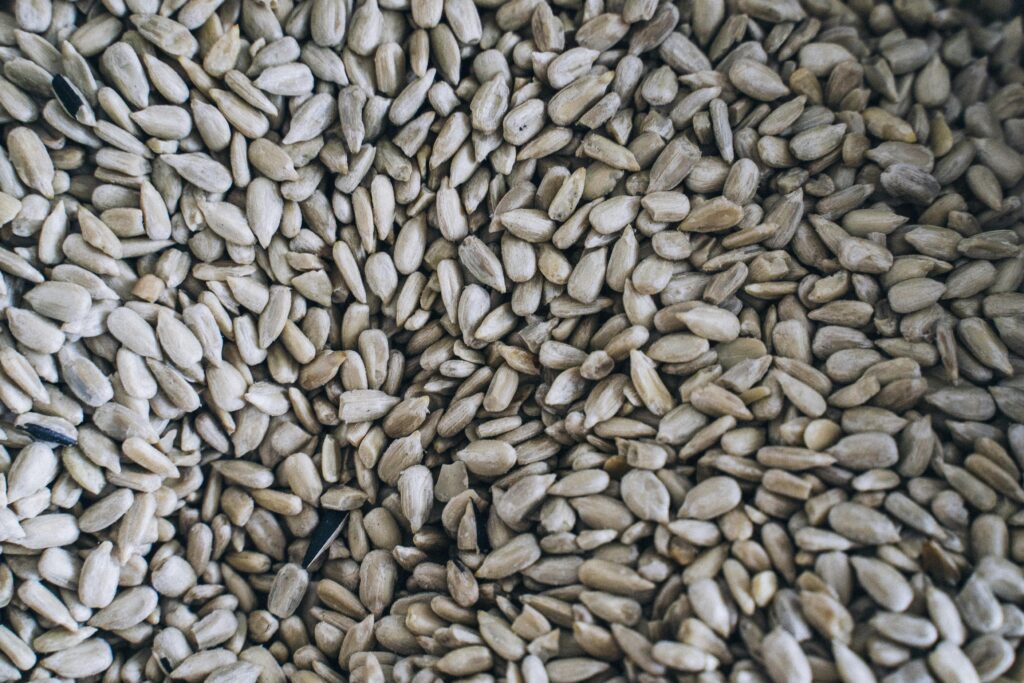When it comes to maintaining overall well-being, most people think about their heart, muscles, or even skin. However, your brain health deserves just as much attention. After all, a sharp and clear mind can make all the difference in how we navigate our daily lives, from making quick decisions to retaining new information. But did you know that your diet plays a crucial role in keeping your brain in top shape?
Yes, you read that right! The foods you eat can significantly impact your cognitive abilities, mood, and even long-term mental clarity. In this article, we’ll explore some of the best foods for brain health and mental clarity and how they contribute to a sharper mind and a healthier life.
1. Fatty Fish: Omega-3 Powerhouses

When it comes to brain-boosting foods, fatty fish such as salmon, mackerel, and sardines top the list. These types of fish are rich in omega-3 fatty acids, essential fats that our bodies cannot produce on their own. Omega-3s are critical for building brain and nerve cells, which are vital for learning and memory.
Numerous studies have shown that people with high levels of omega-3s have increased gray matter in their brains. Gray matter contains most of the nerve cells that control decision-making, emotion, and memory. Moreover, omega-3s have been linked to slowing age-related mental decline and reducing the risk of Alzheimer’s disease.
So, how much fish should you eat? Experts recommend eating at least two servings of fatty fish per week to reap the benefits of omega-3s. If you’re not a fan of fish, you can also consider taking fish oil supplements.
2. Blueberries: Tiny but Mighty Antioxidants

Blueberries may be small, but they pack a powerful punch when it comes to brain health. These tiny fruits are rich in antioxidants, particularly anthocyanins, which have been shown to have anti-inflammatory and antioxidant effects. Antioxidants combat oxidative stress, a condition that contributes to brain aging and neurodegenerative diseases.
Research suggests that the antioxidants in blueberries may delay brain aging and improve memory. One study found that older adults who consumed blueberry juice daily for 12 weeks showed significant improvements in their brain function.
How to enjoy blueberries? Add them to your morning oatmeal, yogurt, or smoothies for a delicious and nutritious start to your day.
3. Turmeric: The Golden Spice for Mental Clarity

Turmeric, often hailed as a superfood, is a vibrant yellow spice commonly used in curry. Its active ingredient, curcumin, has been shown to cross the blood-brain barrier, meaning it can directly enter the brain and benefit the cells there.
Curcumin is a potent antioxidant and anti-inflammatory compound that has been linked to improved memory, reduced depression, and the growth of new brain cells. Studies suggest that curcumin may help clear plaques and tangles that are hallmarks of Alzheimer’s disease.
How can you include more turmeric in your diet? Add a dash of turmeric to soups, stews, and rice dishes, or enjoy it in a warm cup of turmeric tea.
4. Broccoli: A Cruciferous Brain Protector

Broccoli is not only a versatile vegetable but also a powerhouse for your brain. It’s packed with powerful plant compounds, including antioxidants and vitamin K. Just one cup of broccoli provides over 100% of the recommended daily intake of vitamin K, which is essential for forming sphingolipids — a type of fat densely packed into brain cells.
Vitamin K has been linked to better memory and cognitive function, while the antioxidants in broccoli protect the brain from oxidative damage. In addition, the anti-inflammatory effects of broccoli can help protect the brain from injury and degeneration.
Tip for enjoying broccoli: Steam or stir-fry broccoli to retain its nutrients, and pair it with garlic and olive oil for a tasty side dish.
5. Nuts: Snack Smart for Brain Health

Nuts, particularly walnuts, are fantastic for brain health. They are rich in healthy fats, antioxidants, and vitamin E, all of which are beneficial for your brain. Vitamin E protects cells from oxidative stress, which is important for reducing cognitive decline as we age.
Among nuts, walnuts stand out because they are also high in DHA, a type of omega-3 fatty acid that has been shown to protect brain health and improve cognitive performance in adults. Studies have found that people who consume nuts regularly tend to have sharper minds and perform better on memory tests.
How to snack smartly on nuts? A handful of mixed nuts can be a perfect mid-afternoon snack, or you can sprinkle them on salads, yogurt, or cereal.
6. Dark Chocolate: A Delicious Brain Boost

Yes, chocolate lovers, rejoice! Dark chocolate — particularly those with a cocoa content of 70% or higher — contains flavonoids, caffeine, and antioxidants, which are all beneficial for brain health. Flavonoids, the main antioxidant in chocolate, are known to enhance memory and improve mood.
Research indicates that the flavonoids in dark chocolate can increase blood flow to the brain, boost cognitive function, and help slow down age-related mental decline. Furthermore, chocolate stimulates the production of endorphins, which makes you feel happier and more alert.
How to enjoy dark chocolate? Opt for a small piece of dark chocolate when you need a quick pick-me-up or incorporate cocoa powder into your recipes.
7. Pumpkin Seeds: Tiny Seeds with Big Benefits

Pumpkin seeds may be small, but they are loaded with brain-friendly nutrients like magnesium, iron, zinc, and copper. Zinc is crucial for nerve signaling, while magnesium is essential for memory and learning. Iron deficiency can lead to brain fog, and copper helps control nerve signals.
In addition to these minerals, pumpkin seeds are also rich in antioxidants that protect the brain from free radical damage.
Simple ways to eat pumpkin seeds: Sprinkle them over salads, yogurt, or oatmeal, or enjoy them as a crunchy snack on their own.
8. Oranges: Vitamin C for Cognitive Defense

Oranges are well known for their high vitamin C content. But did you know that vitamin C is a key nutrient for preventing mental decline? Vitamin C is a powerful antioxidant that fights off free radicals that can damage brain cells. Moreover, higher levels of vitamin C have been associated with improved cognitive functions such as memory, concentration, and decision-making.
One medium-sized orange provides all the vitamin C you need in a day, making it one of the most accessible fruits for promoting brain health.
Easy ways to add oranges to your diet: Snack on them fresh, add orange slices to your salads, or drink freshly squeezed orange juice.
9. Whole Grains: Fuel Your Brain with Complex Carbs

Whole grains like oats, barley, quinoa, and brown rice provide an excellent source of complex carbohydrates and fiber. These foods slowly release glucose into your bloodstream, ensuring a steady supply of energy to the brain throughout the day. This is important because your brain uses glucose as its primary energy source.
Moreover, whole grains contain B vitamins, including B6, B12, and folic acid, which are essential for reducing homocysteine levels in the blood. High homocysteine levels are linked to a greater risk of cognitive decline and Alzheimer’s disease.
Ideas for incorporating whole grains into your diet: Start your day with oatmeal, choose whole grain bread, or enjoy a quinoa salad for lunch.
10. Eggs: Nature’s Perfect Brain Food

Eggs are often regarded as nature’s perfect food, and they are certainly great for your brain. They are rich in several brain-friendly nutrients, including vitamins B6 and B12, folate, and choline. Choline is especially important because it helps produce acetylcholine, a neurotransmitter that plays a crucial role in regulating mood and memory.
Consuming adequate choline has been linked to better memory and cognitive function. Additionally, the B vitamins found in eggs have been shown to reduce levels of homocysteine, which can help reduce the risk of stroke, cognitive decline, and dementia.
How to enjoy more eggs? Boil, scramble, or poach them for breakfast, or add them to salads and sandwiches.
Conclusion
Maintaining brain health and ensuring mental clarity are essential components of a healthy life. By incorporating these nutrient-rich foods into your diet, you can support cognitive function, enhance memory, and protect your brain from age-related decline. Remember, a healthy brain is just as important as a healthy body, and it all starts with what you put on your plate.
Whether you prefer the taste of fresh fish, enjoy a handful of nuts, or savor a piece of dark chocolate, there’s a wide variety of foods that can help keep your brain healthy and your mind sharp. So, next time you plan your meals, think about not just your body but also your brain. After all, the foods you choose today can shape your mental clarity tomorrow!
References
- Gomez-Pinilla, F. (2008). Brain foods: the effects of nutrients on brain function. Nature Reviews Neuroscience, 9(7), 568-578.
- Morris, M. C., Wang, Y., Barnes, L. L., Bennett, D. A., Dawson-Hughes, B., & Booth, S. L. (2018). Nutrients and bioactives in green

